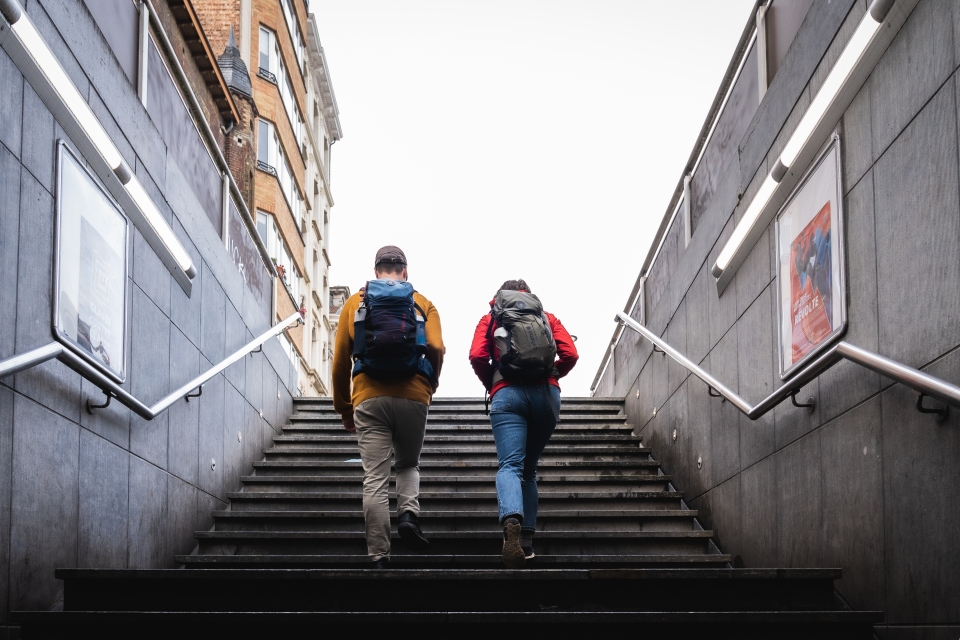One morning we set out to look for Mr. M. He’s mentally limited and lives on the street. He moves about a lot and finding him is always a challenge.
First, we search in the huge parking lot of a shopping center, then in the center itself and finally in the surroundings: gloomy viaducts, remains of camping spots, old shopping carts full of rubbish. But no trace of Mr. M.

We are disappointed. Another few hours wasted. But we’re also a bit worried because we have not seen him for two weeks.
OK, but before giving up, we search the shopping center once again to be sure that we didn’t miss anything.
Nothing.
We pass by a Lebanese snack bar, specialized in chicken. That gives my colleague, who knows what Mr. M. likes to eat, an idea. He asks the manager:
- “An African man with a somewhat peculiar behaviour and who comes around here regularly, does that mean anything to you?”
- “Oh yes, I know him.”
- “And he comes up to you?”
- “When I see him passing by, I call him and give him something to eat.”
Dead simple, as if it was the most natural thing in the world. Or perhaps it is, and I am but an old cynic.
“I call him and give him something to eat”: apparently, some people care for others without knowing anything about them, without being asked to do so, without official recognition, logo, or mention…
After this good contact we walk on – with that peculiar glow inside us, the feeling that we’re not alone. The morning had not been for nothing.
It was not the first time, and not the last, that we could observe this: shop keepers often surprise us by being tolerant towards people who are borderline hygienic, and by remaining always generous, quietly benevolent.
They are most valuable partners – faithful guardian angels for some of our patients.
- Pierre Ryckmans, medical coordinator
*) We do our utmost to respect the privacy of our patients and our professional secrecy. However, we want to testify to how they must survive and how we are working together to reintegrate them. As a result, the names of places and people are deliberately omitted or changed and real-life situations are placed in a different context. There is no direct link between the photos and the stories above.

